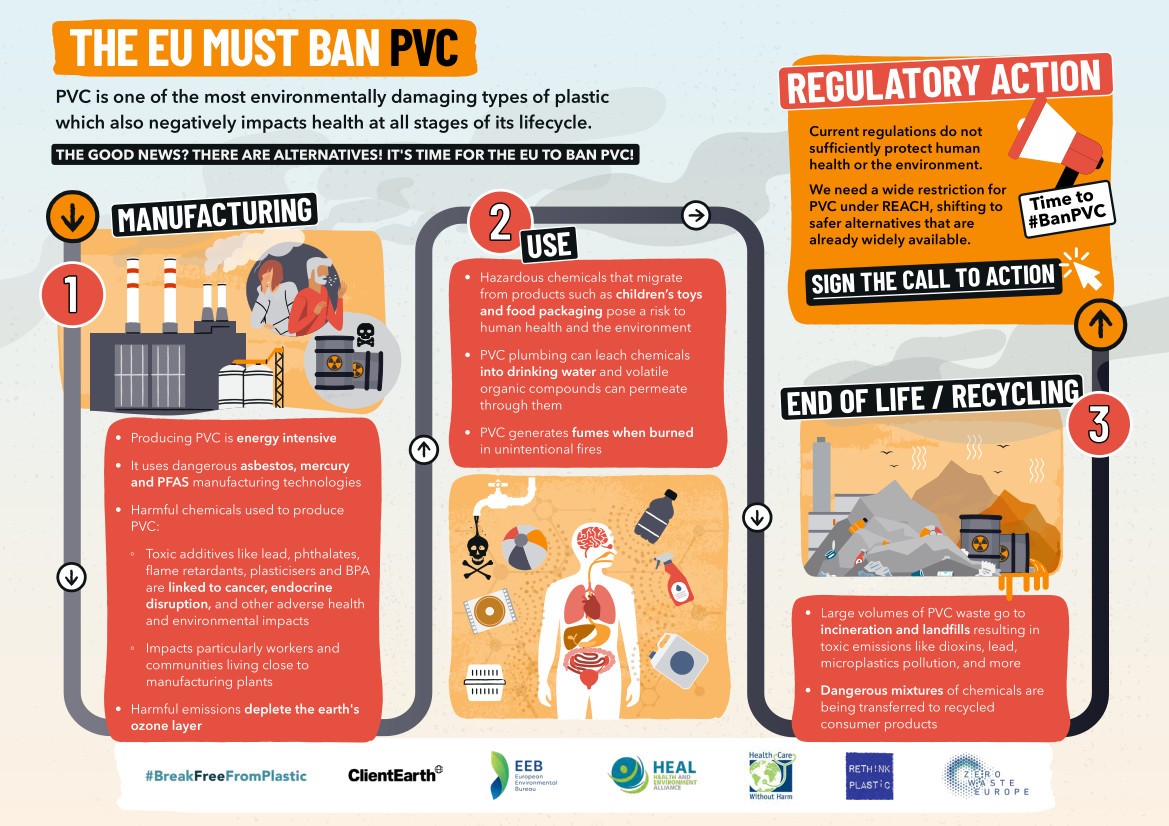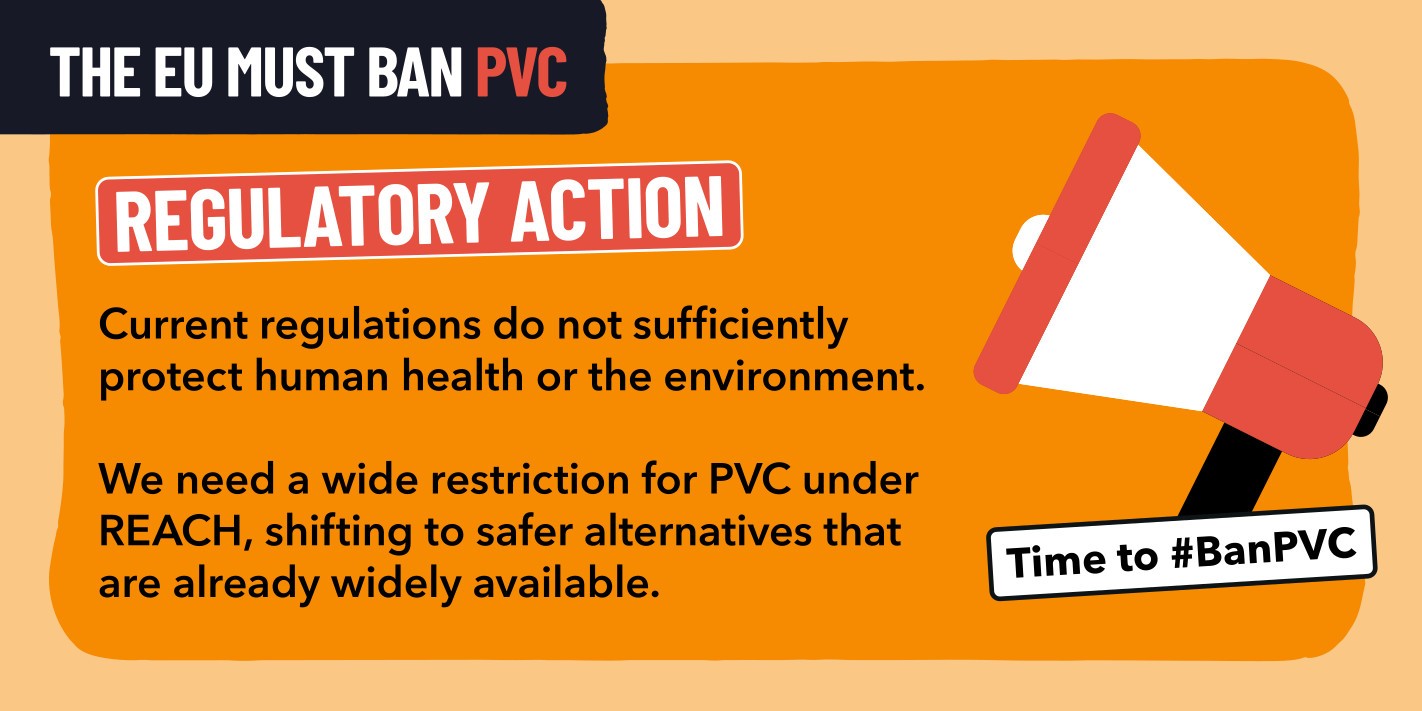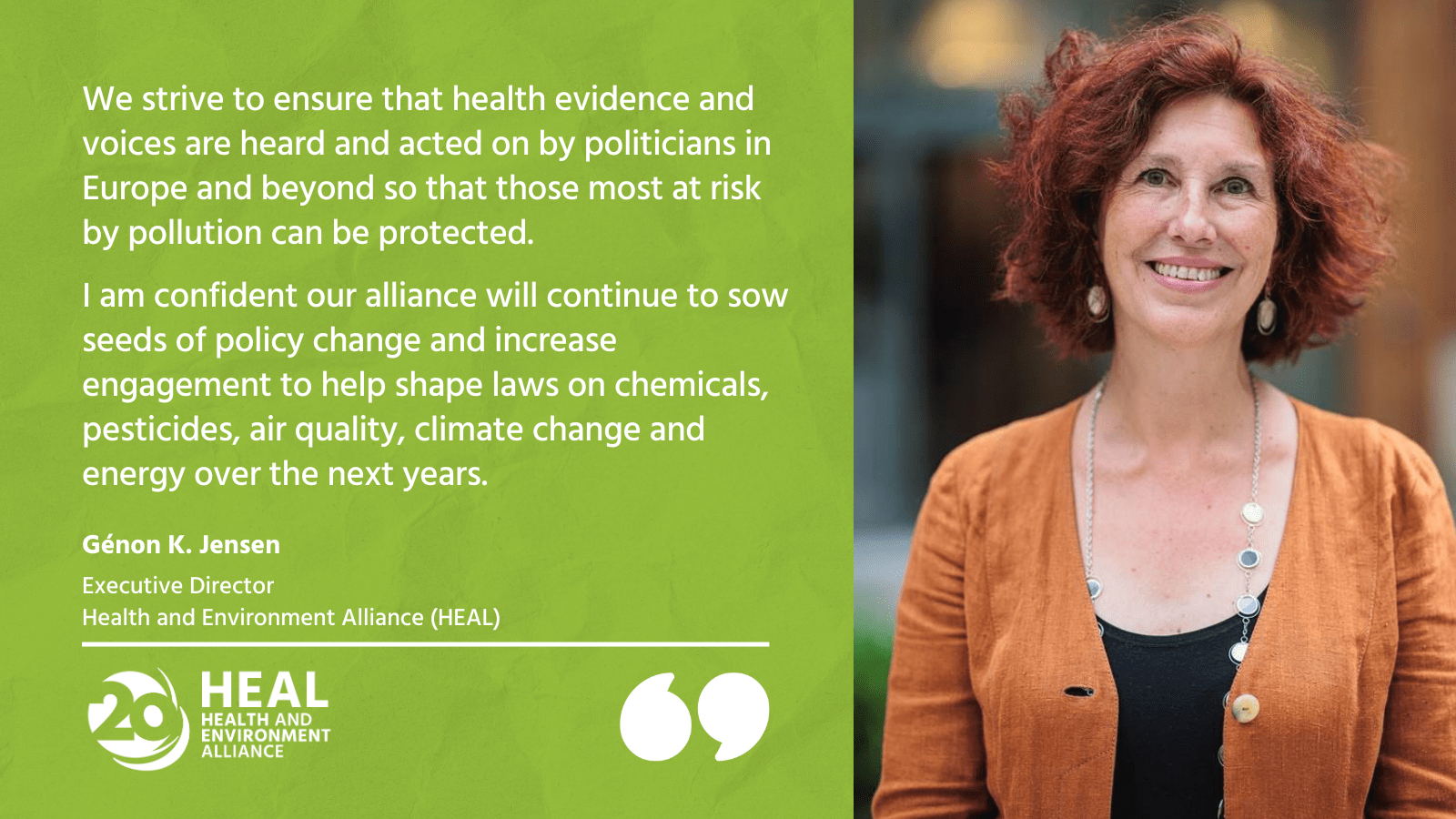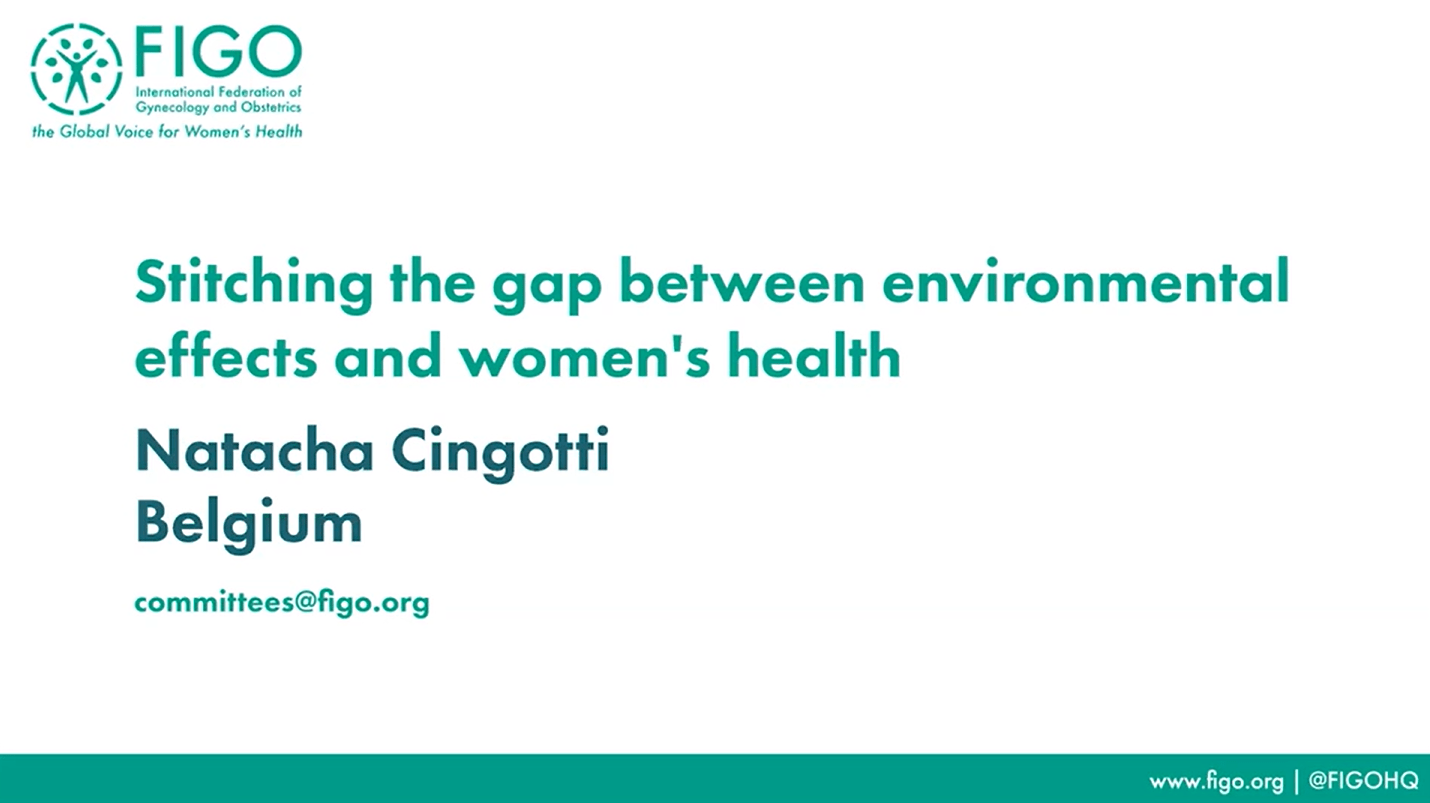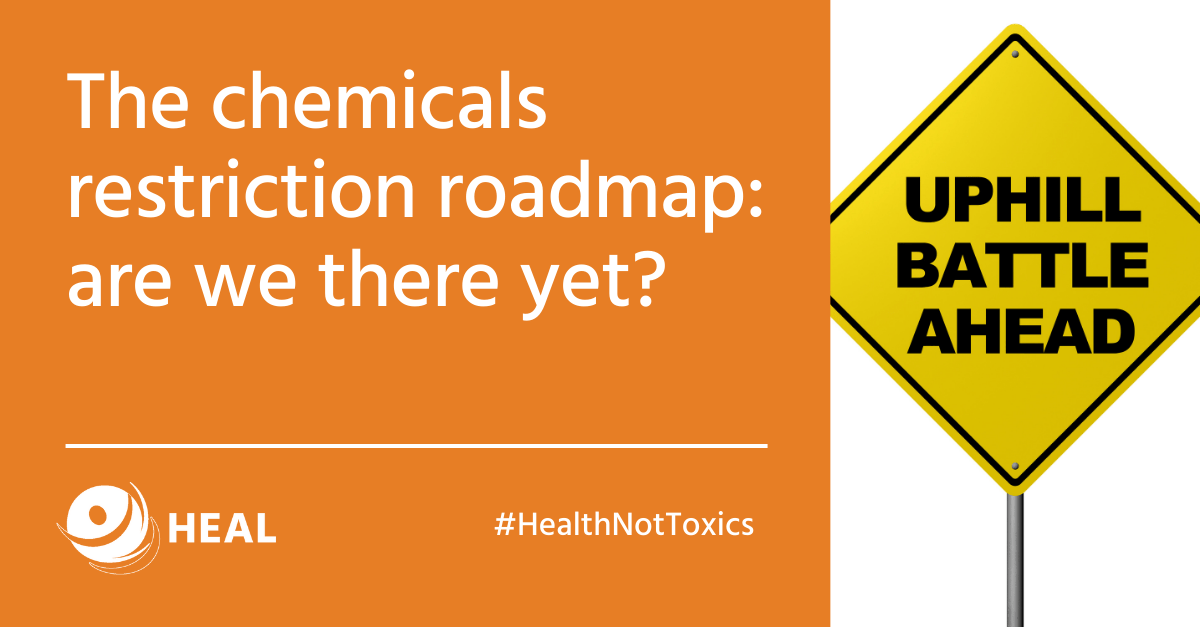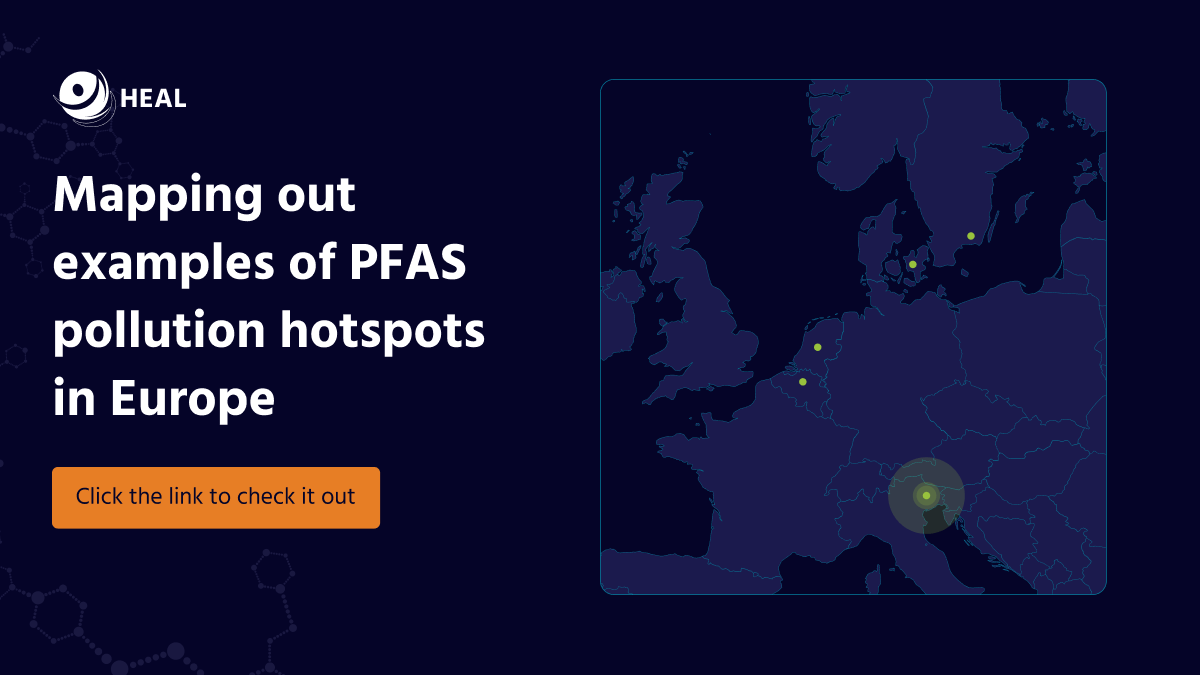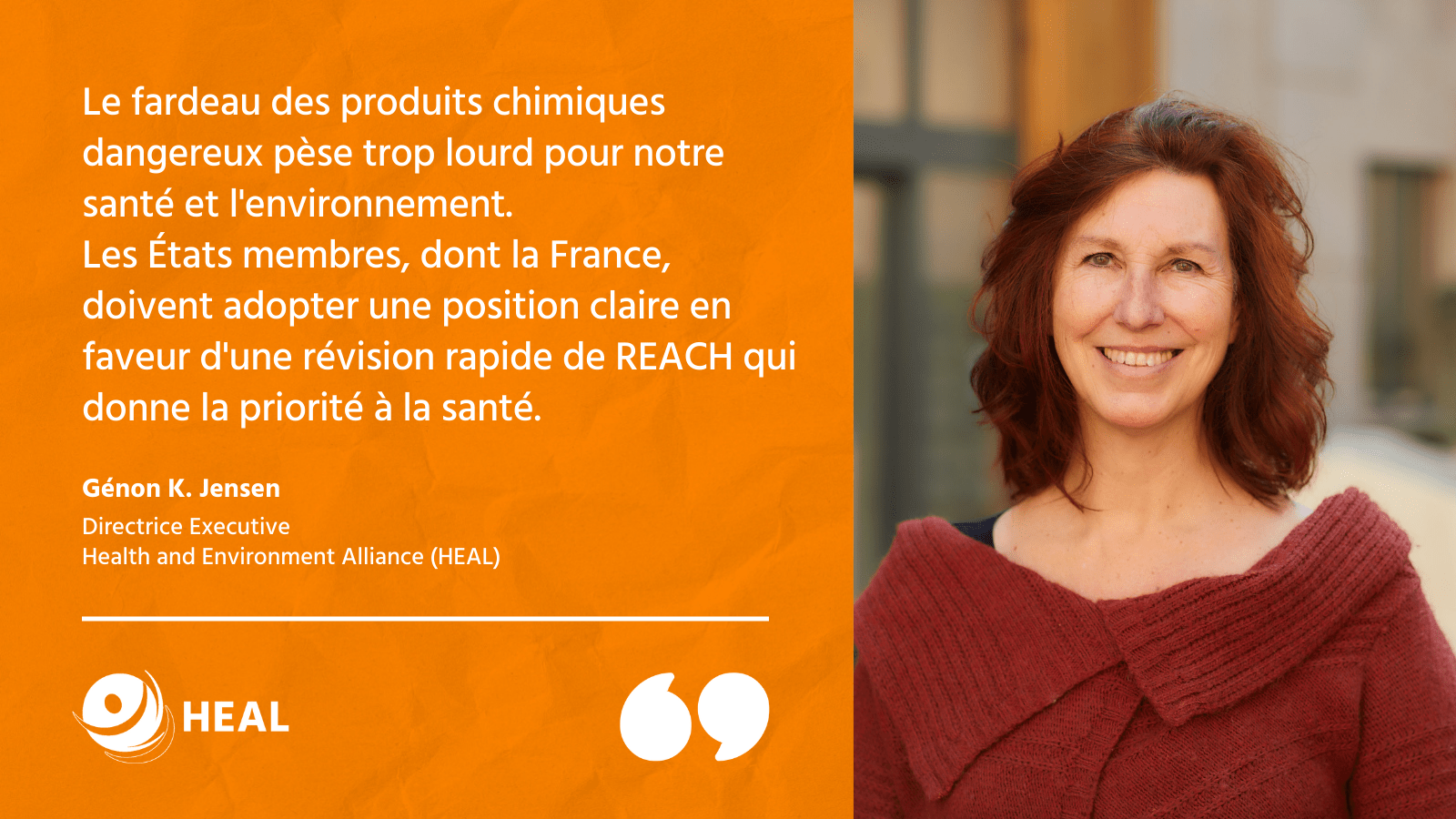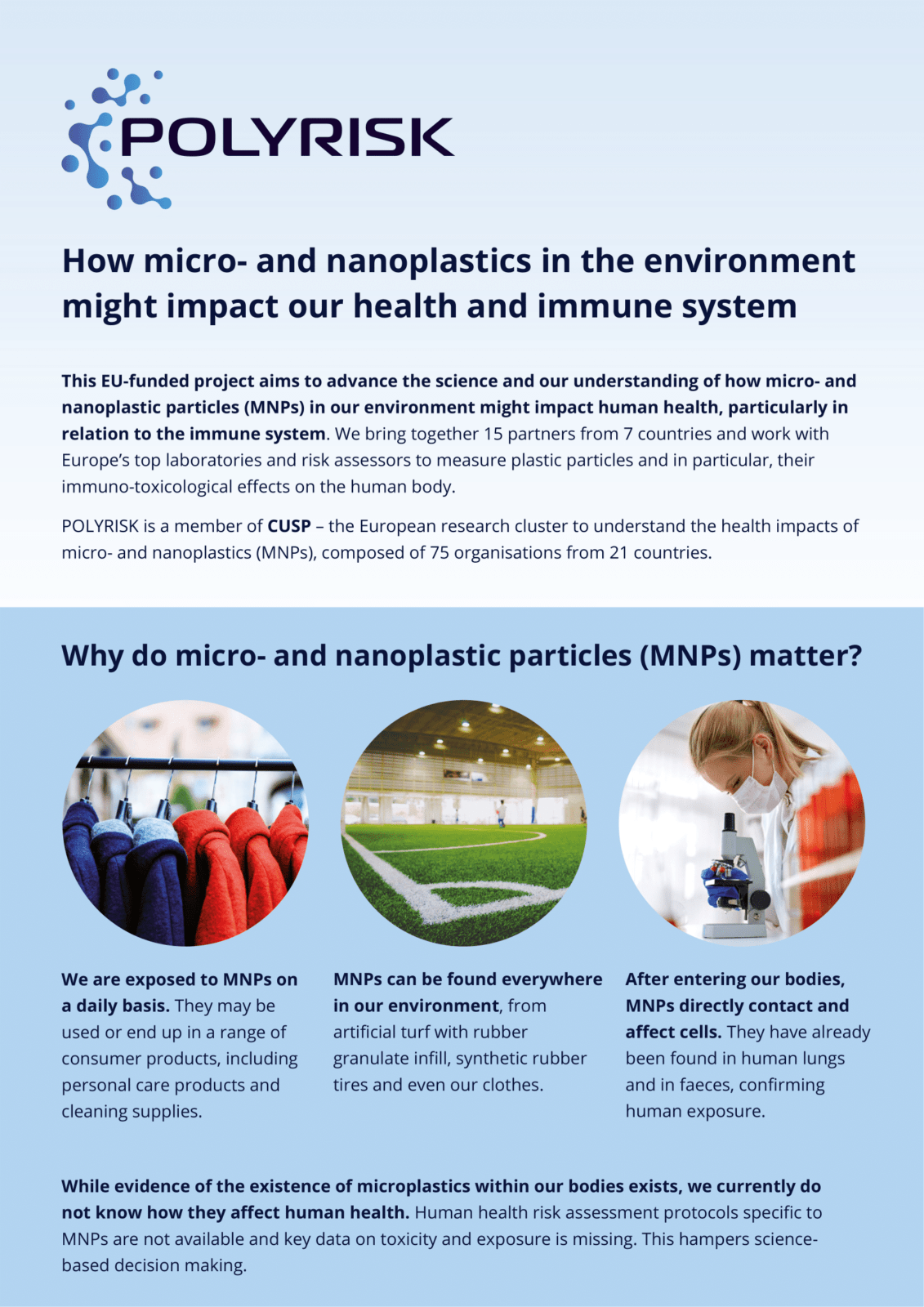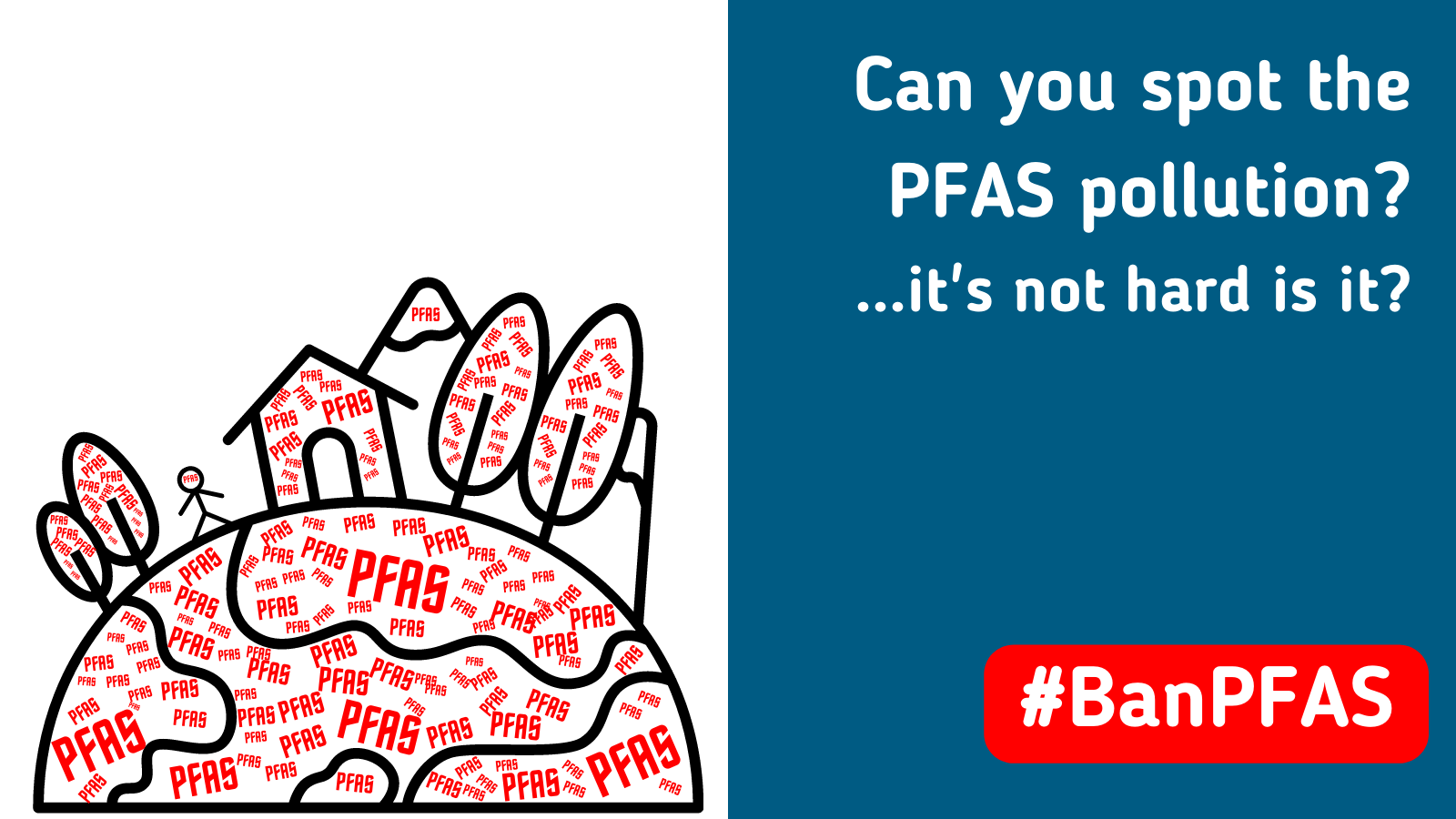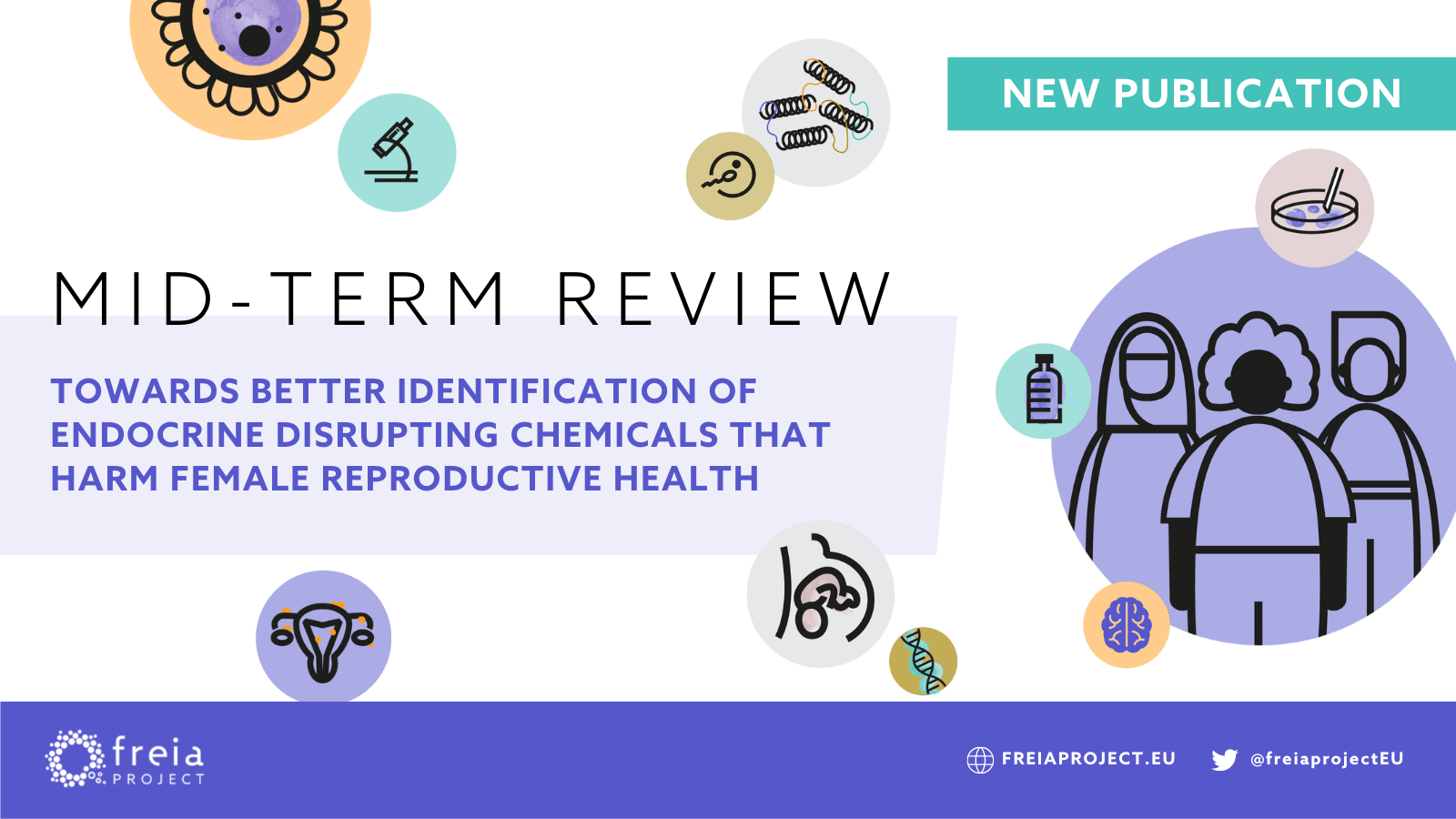Press release: ECHA report confirms that regulatory action is needed on PVC and its additives
Civil society organisations welcome the publication of the new investigation report on PVC (polyvinyl chloride) and its additives by the European Chemicals Agency (ECHA). The findings clearly indicate harm to health and environment from some substances added to PVC and the release of its microparticles.

